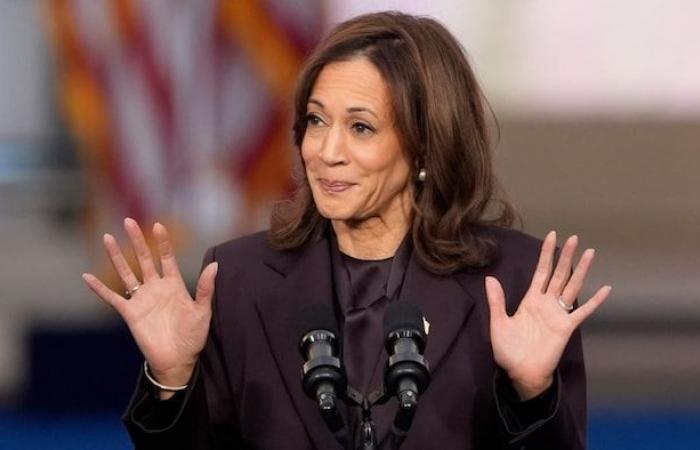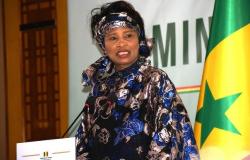For ten days, we have been analyzing the Haroun Bouazzi affair from all angles. The controversial remarks made by the MP – and the latter’s refusal to apologize to all the elected representatives of the National Assembly – have certainly caused a lot of damage to Québec solidaire.
All this controversy further reinforces the perception that Québec solidaire is primarily concerned with questions of social justice, while the party seeks precisely to shine on other questions.
As a closed-mic strategist recently explained, the media spontaneously tend to turn to Québec solidaire when it comes to commenting on a case of racism, or even an issue linked to gender identity. In doing so, the party strengthens its position as defender of minority groups.
When it comes to commenting on a health or education issue, on the other hand, the voice of Québec solidaire blends with that of the other parties, also called upon to react. The problem is that Quebecers are primarily concerned about issues related to the economy or public services, as numerous surveys have shown in recent years.
Nothing very surprising here. In the United States, many analysts attribute the defeat of the Democratic Party to the fact that its representatives have been more interested in questions of social equality than in economic problems over the past decade.
Open in full screen mode
In the United States, many analysts attribute the defeat of the Democratic Party to the fact that its representatives have been more interested in issues of social equality than economic issues over the past decade. (Archive photo)
Photo : Associated Press / J. Scott Applewhite
Members’ priorities
What may be more surprising is that the members of Québec solidaire themselves seem more concerned with material issues than with the issues with which they are spontaneously associated in the media.
When we survey our members, our supporters, with our internal tools, what emerges above all is the question of the cost of living and services. The question of the fight against racism, for example, comes much further down the list
explains a source.
Even the issue of the environment, although at the center of Québec Solidaire’s two most recent electoral campaigns, no longer seems to have the same traction as before, at least among young people. It is true that the fight against climate change is easier to bear when you are well housed than when you struggle to meet your basic needs.
This does not mean that these issues are not important to political education advocates; only that their real level of concern does not necessarily correspond to the image we have of it. In this regard, another distinction is essential: that between party members and delegates.
If you have to be a member to be chosen as a delegate to a national council or a party congress, those who participate in these bodies are not necessarily representative of all the members of the political party. Activism requires a lot of time and investment, and not everyone has the same level of commitment.
We ask a lot of our volunteer activists. It’s a lot of reading, a lot of preparation to participate in a proceeding. Young people and more vulnerable people do not necessarily have the resources to do this
underlines another source.
In other words, the events organized by the party first attract the most mobilized people. This may explain why certain questions capture the interest of delegates without these same questions necessarily finding the same resonance with everyone.
The economic question
Added to this is another structural problem. Traditionally, the left’s response to economic problems has primarily been to advocate a stronger role for the state in the economy. To combat the unemployment rate, during a recession, more public spending is promised to generate employment and help the hardest hit citizens.
However, inflation and the rise in the cost of living are currently hitting even though the unemployment rate remains low. People are having a hard time, but it’s difficult to find a speech that responds to that
we explain backstage.
Citizens are also more suspicious of speeches focused on the increased use of public funds. Not only has there been a lot of spending since the pandemic – without this helping to resolve the problems plaguing services to the population – but this spending is itself to blame for the rise in inflation.
Faced with the current situation, parties of all stripes are actively seeking to meet the needs of the middle class. At home, as elsewhere in the world, we are reducing taxes and sending checks to citizens to help them cover the cost of living – a solution that the left does not usually favor.
This is without taking into account that it is easier to make promises of new spending when we are in a period of budget surplus than when the State is already recording the heaviest deficit in its history in absolute terms.
Open in full screen mode
The Prime Minister of Canada, Justin Trudeau, announced new measures to help Canadians cope with the rising cost of living. (Archive photo)
Photo : The Canadian Press / Chris Young
Pragmatism on the menu
For something bad comes good, says the proverb. If the controversy of recent days has at least one benefit, it is undoubtedly to provide arguments for Gabriel Nadeau-Dubois.
The co-spokesperson for Québec solidaire wants to see his party better choose its battles, prioritize the issues that matter most to citizens. The controversy surrounding Haroun Bouazzi will allow him to better illustrate his point. It is still necessary that the activists share his vision of things and that the main party concerned does not let the most recent developments tarnish his enthusiasm.







